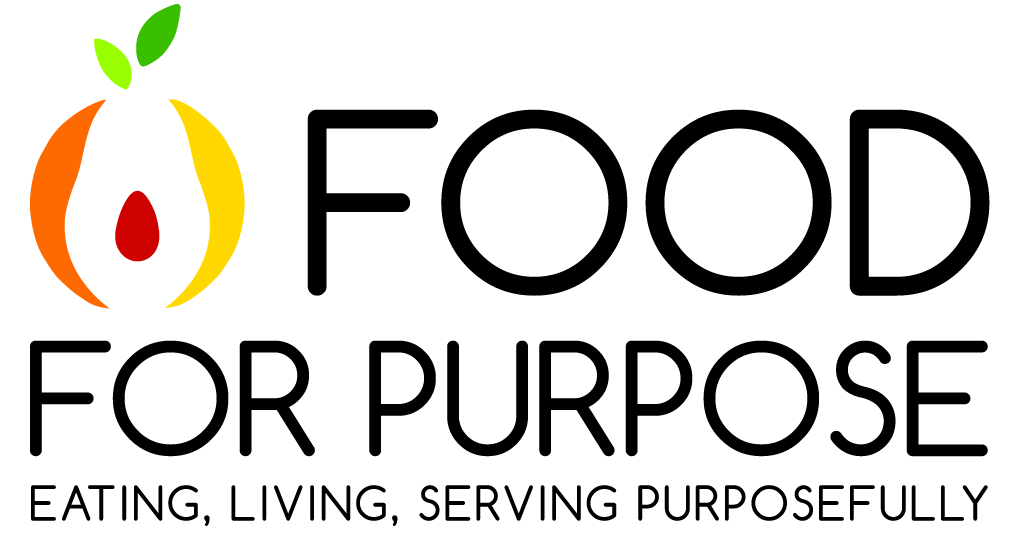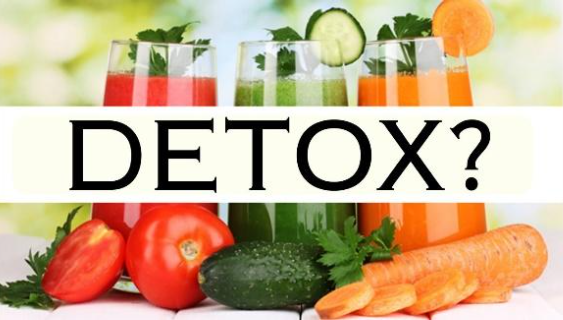Edition 9
January 2023
Being Better in 2023
By Shola Oladipo, Food for Purpose CEO
Hello readers - I hope you had a superb time during the Christmas festivities, I enjoyed a truly blessed and peaceful time.
I am grateful for a new year and truly look forward to God’s unfolding blessings and the opportunity to share this with others. I recently pondered on the common greeting of ‘happy new year’ and concluded that it can be somewhat of a cliche.
In reality the new year, new month, new day, hour or minute are not really new unless we decide to embrace newness! Even with our prayers and positive confessions, we must be involved by engaging with the new opportunities and learnings that come our way.
2023 holds so much exciting potential for us, but nothing will just happen if we do not engage. For me, it starts with a positive attitude, accompanied with realistically inspiring goals, a healthy ‘invironment’ and environment too.
At Food for Purpose, our motivation as an organisation is simply being better. Better today than you were yesterday - that’s progress! This year, give yourself space and take a healthy pace towards being better… you have got this!
Be blessed!
Featured this Month
CEO Says - Being Better in 2023?
Recipe of the Month - Coconut Turmeric Fonio
A-Z of Soul Food - F for Fonio
Food Tips - Detox or Not? Is it Just a Fad?
Special Guest Contributor - Miss Blessing Bakare, Doctoral student of Clinical Psychology
Food for Purpose News
Premier Christian Radio
Listen out for our CEO, Shola Oladipo, on Premier Christian Radio Inspirational Breakfast show with Esther Higham in February. She will be sharing interesting tidbits on faith and health. https://www.premierchristianradio.com/
HCI in Lambeth
Congratulations to our latest church - The Apostolic Church - All Nations’ Centre - Kennington who completed the HCI, more results to follow in our Bedfordshire partnerships.
NCCEP Church in Gipsy Hill
On 29.1.2023 -pastor Akinola and the NCCEP Church in Gipsy Hill will be beginning their HCI journey. We look forward to sharing their journey.
Are you a church leader in Lambeth?
Start the new year with the Healthy Church Initiative (HCI) Put health on your church agenda! Contact us at admin@foodforpurpose.org for details of how you can sign up for this free 6-week church-based health journey.
Cultural humility for healthcare professionals
We run an introductory session for community-based health care professionals who work with Black African and Caribbean communities. Contact us at admin@foodforpurpose.org to sign up for our online session for support on how to communicate effectively and deliver tailored patient care.
Research News about Menopause and Eating Disorders
The North American Menopause Society (NAMS) suggests that perimenopause may be an especially risky time for women who are trying to overcome a poor body image. Body Dissatisfaction can lead to eating disorders at any age. Eating disorders are stereotypically associated with adolescents and young adults. Growing evidence, however, suggests that these conditions can occur at any time during a woman's lifespan, including at midlife.
A new study finds that body dissatisfaction is a primary cause of eating disorders, especially during perimenopause. There is some evidence that supports the idea that perimenopausal women have the highest rates of dysregulated eating behaviours (eg, weight-control behaviours such as regular counting of calories or consumption of diet foods) of any reproductive stage at midlife and are significantly different from premenopausal women with regard to body dissatisfaction and feelings of fatness.
Although findings such as these remain scant; the association between eating disorders and symptoms of perimenopause (eg, negative mood, depression, and fatigue) confirms that perimenopause may be a particularly risky time for eating pathology. In this new small study, which sought to investigate the structure of eating disorder symptoms specifically during perimenopause and early post-menopause, the researchers used network analysis statistical models to compare the structure and importance of specific eating disorder symptoms across reproductive stages.
Although they admit that larger studies are necessary with this underrepresented female population, the researchers believe that the study confirms that dissatisfaction with body image is a key risk factor for eating disorders across the lifespan, especially at midlife.
If you are experiencing issues with perimenopause or body image please contact your GP or healthcare provider. It may help to talk with a trusted friend or relative. Don’t struggle alone.
More information about this study -
Finch, Jody E., Xu, Ziqian, Girdler, Susan, Baker, Jessica H. Network analysis of eating disorder symptoms in women in perimenopause and early postmenopause. Menopause, 2023 DOI: 10.1097/GME.0000000000002141
National days / weeks / months in February
February 1st - 28th Heart Month
February 2nd - Time to Talk Day
February 4th - World Cancer Day
Coconut Turmeric Fonio
Fonio is a grain native to Africa. It is deliciously versatile and can be eaten in place of rice, pasta, couscous or quinoa. It is important to carefully remove any grit or sand when cleaning, and to give it a thorough wash before cooking.
Image from the Healthier Steps website
https://healthiersteps.com/recipe/turmeric-coconut-fonio/
Ingredients
220g Fonio (washed)
200ml low fat coconut milk
1 large onion (finely chopped)
3 cloves garlic (finely chopped)
1 teaspoon ginger (finely chopped)
½ teaspoon dried thyme
2 spring onions (chopped)
½ teaspoon ground turmeric
1 large red bell pepper, diced
Method:
Add coconut milk and stock to a medium saucepan over medium-high heat, bring to a boil.
Add onion, garlic, ginger, thyme, spring onion, turmeric, red bell pepper, and salt.
Stir and cook for further 5 minutes.
Add the washed fonio and stir.
Cover the saucepan and reduce heat to cook for another 10 minutes. Fluff with a fork and stir.
Serve with your favourite meat, fish or vegetarian protein dish.
Recipe credit adapted from: https://healthiersteps.com/recipe/turmeric-coconut-fonio/
A-Z of Soul Food
This month, we’re celebrating Fonio for the letter F
Fonio
Fonio (also called acha, iburura, and hungry rice) is an ancient African grain, native to West African countries such as Mali, Senegal, Togo, Burkina Faso, Guinea, and Nigeria. It is a staple, most commonly enjoyed in the mountainous areas of the countries. Fonio grows well in drought conditions and poor soils without the need for fertilizers. Despite its rich cultural heritage and nutrient profile, fonio is considered an underused and neglected grain.
It can be used like other grains such as wheat, rice, and corn. It is a whole grain rich in B-vitamins such as thiamine, riboflavin, and niacin, high in calcium, iron, copper, zinc, magnesium, fibre, and protein (plant source of amino acids). As a grain packed with many nutrients, it is sometimes referred to as a 'supergrain'. It can be used to make porridge, cous cous, and bread which can be enjoyed by everyone in the family.
Detox or Not?
Is it Just a Fad?
By Shola Oladipo, Registered Dietitian
We are all probably guilty of eating and drinking a little too much during the Christmas festivities. For many of us the generous servings of delicious goodies have even spilled over to the new year! A very common practice amongst the masses is to commence a detox diet for the new year. It is thought that thousands of people every year will undergo some kind of ‘cleansing diet’ regimen to cancel the over-generous dietary practices over the festive period.
It is not unusual to be bombarded with all manner of media pop-ups, posts and propositions all suggesting you undertake a particular diet or inner cleanse. You may have also noticed that certain celebrities often advocate various ‘new year’ diet practices; making claims to cleanse, shed pounds, detoxify and restore your body to uber healthiness.
The Bible clearly states that ‘people perish for lack of knowledge.’ This short article will hopefully outline the truth about detox diets and associated fads; and educates you with knowledge on the best way to be healthy for 2023 and beyond.
I must stress that my role as a health care professional is to share evidence-based nutrition facts and dispel myths. This installment may also help to save you from committing your precious money to an unnecessary, possibly harmful and restricted diet! I will let you make up your own mind.
What is a detox diet?
‘Detox’ is a popular buzzword in the health and beauty world. The idea behind detoxing is that from time to time we need to clear the “toxic waste” from our body in order to stay healthy. (1) In general, a detox diet involves limiting your intake to eating or drinking certain foods or supplements. These are often in the form of a drink or juice, for a certain period of time. The time period can be anything from a week to about a month. Some detox diets involve extreme fasting too. This is supposed to purify your body by ridding it of toxins and waste that have accumulated in it over time, often due to unhealthy eating habits.
What are some common detoxing practices?
These include the use of herbal supplements such as milk thistle, pre-and probiotics, or juicing. Other recently popular detox diet fads are: Blood type diets, drinking your own urine, drinking alkaline water, drinking detox teas, and taking various detox powders.
Where does the theory come from?
It is not 100% clear how this has arisen. Detoxification, or the practice of ridding the body of toxic or harmful substances, is promoted on countless websites and endorsed by a host of celebrities. Advocates of detox therapies start with the premise that the body accumulates toxins that can cause cancer and other diseases. Regularly cleansing oneself of such toxins purportedly reduces the risk of disease and endows one with a feeling of good health, more radiant skin, and having more energy! It is essentially a pseudo-science that can be harmful in some cases.
How reliable are detox diets?
There is no scientific evidence that any of these so-called cleanses really benefit a person's health.
How do our bodies deal with toxins?
The body is a well-developed system that has it’s own built-in mechanisms to detoxify and remove waste and toxins. Our body constantly filters out, breaks down, and excretes toxins and waste products like alcohol, medications, products of digestion, dead cells, chemicals from pollution, and bacteria. God has foreseen the need for keeping harmful substances from our bodies. In His infinite wisdom, we are equipped with various organs, such as the skin, gut, liver, and kidney, that continually ‘detoxify’ the body from head to toe by responding to signals, in the form of hormones, to remove any waste products. There are no pills, powders, lotions, or potions that can do a magic job. If you have over-indulged in alcohol, for example, the liver works hard to break down the alcohol into products it can remove. Our liver and kidneys, if healthy, do a great job of cleansing our bodies on a daily basis.
What is recommended instead of detoxing?
Firstly, ditch the guilt from 2023. Then face the fact that the festive overindulgence is likely to have caused unwanted weight gain which could lead to other health problems. If this is the case, there is a need for action. Don’t be swayed to believe any one product, or ‘diet’ will transform your body or health. Don’t waste your money on restrictive exclusion diets or fads. There is no quick fix. The onus is on you to follow a consistently healthy, well-balanced diet – accompanied with regular exercise. That is the ‘cleanse’ and ‘detox’ we need to fulfill your God-given purpose.
Have a peaceful, prosperous and purposeful 2023
References
1. https://www.bda.uk.com/foodfacts/detoxdiets.pdf
2. Pagoto, S.L. and Appelhans, B.M., (2013) A Call for an End to the Diet Debates JAMA. 310(7):687-688. doi:10.1001/jama.2013.8601.
3. https://www.nhs.uk/live-well/healthy-weight/how-to-diet/
Physical Activity in Women
By Precious Oladipo, FFP Director & Fitness Lead
Being a woman is wonderful right? We’ve been blessed with the power of intuition which no man has ever been able to understand. We’re literally perfect (almost) – but we need a bit of a boost in the physical activity department. Let’s talk about physical activity and women’s health.
Women in the UK are less active than men with 42% of us not meeting the recommended guidelines of 150 minutes of physical activity a week. The game is rigged, I know. What makes matters worse is that Black African Caribbean woman are amongst inactive populations in the UK and these trends are also similar amongst the younger generation too!
Statistics also show that the amount of time women dedicate to physical activity reduces as we get older, and lower levels of physical activity are linked with poorer health outcomes. Conditions of the musculoskeletal system (such as osteoporosis), dementia and Alzheimer’s disease, and breast cancer are more common in women than men. Black women in particular are also more likely to be overweight and at higher risk for gestational diabetes.
Fear not, as increasing physical activity levels is one of the solutions to preventing and managing these conditions which will help to improve overall quality of life. We will cover more of the benefits of physical activity for women next time – so keep a look out for the next edition of Purposeful You!
Special Guest Contributor
Miss Blessing Bakare is a Doctoral student of Clinical Psychology with a background in Neurodevelopmental Sciences and Low-Intensity Cognitive Behaviour Therapy
She is also Chair and Co-Founder of the charitable organisation At the Heart'
Planning ahead for the new year
Do you find it challenging to plan ahead and set goals in the new year? Perhaps you don’t know where to start or what to focus on. Here are some helpful questions and prompts to get you going with your plans for 2023.
What is one word you would like your 2023 to embody?
Take some time to think about why you chose that specific word?
How would you like this word to define your 2023? What are some practical ways that you can work towards this?
In 2023…
I want to be successful in…
I want to achieve...
I want to learn/discover...
I want to love ____ about myself
I want to say no to...
I want to say yes to...
I don't want to procrastinate over...
I want to visit...
I want to reward myself with…
(These prompts can help to highlight what is important to you and direct you to specific areas for goal setting in the new year!)
Decide on your goals for these different areas of your life over the next year
Physical Health / Fitness
Mental Health / Self-Knowledge
Personal Life / Family
Career / Studies
Friends / Community
Relaxation / Hobbies / Creativity
Personal Habits
Think about where you are now, where you’d like to be by this time next year, and how you would like to get there.
Try to make your goals SMART (Specific, Measurable, Attainable, Relevant and Time-bound) and break each goal into small, manageable steps.
Website
www.attheheartuk.org
Greetings, loyal PY supporters! How are you all doing, as we embrace a brand new year following another trip around the sun? 🥰 It's been a bumpy ride of late, with very cold weather, energy price hikes, and everything costing more in the supermarkets. Hopefully, you're able to successfully navigate your way through this period of turbulence, safe in the knowledge that 'This too Shall Pass'
Here's some money-saving hacks for you to enjoy 💵
Spend less on food shopping
Due to inflation, food expenditure is one of the main culprits eating away at our household budgets. By shaving £5 off of each weekly shop - you make an annual saving of £260. If you can reduce your food bill by £10 per week - you’ll save £520 each year which could help offset increased energy costs.
Try shopping online if you can - that way, not only can you keep a close eye on spending item by item - you won’t be tempted to impulse buy in-store. The main supermarkets offer mid-week delivery slots from as little as 80p.
Reduce food waste
Plan your meals for each day of the week and don’t buy more than you need. Don’t cook ‘extra’ unless you specifically want to eg take some pasta to work, for lunch, the day after you had tuna and sweetcorn pasta at home for dinner. Force yourself to make less by cooking food in smaller pots and pans.
Remember that throwing food in the bin that you’ve bought is as nonsensical as throwing your money in the bin. If you generate ‘leftovers’ do think of how they can be used in other dishes.
Take a packed lunch to work
Spending money on convenience food in or near where you work (Tesco Local, Chicken Shop, local deli, work canteen etc) is one of the easiest ways to lose track of how much money you’re actually spending. Few of us will set a budget for each day and will just buy ‘whatever we fancy’ which could vary day to day in the type of cuisine and cost. It’s not difficult to spend £5 on a sandwich and a drink or more depending on what’s available near your place of work. £5 per day is £25 per week, £100 per month and £1200 per year. A LOT of money.
By planning ahead you could buy everything you need to fix your lunch for work the night before, alongside your weekly shopping. It really doesn’t take long to make a sandwich or pop some leftover pasta into a plastic container. However, if you really cannot face it or simply don’t have time - you could still save a lot of money by buying prepared food for lunch from discount supermarkets such as Lidl and Aldi. In fact, all of the major supermarkets sell a selection of sandwiches and pasta pots - as well as things like wraps, cartons of fresh soup, and sushi. They will cost far less from your local supermarket than in any of the outlets near your place of work - especially if that happens to be in Central London.
Preparing lunch from scratch is not only better economically but also because you can make it exactly to your liking and you know precisely what’s in it. The next best alternative is buying supermarket food to take with you to work - it’s definitely preferable to regular trips to the nearby chicken shop or Maccy Dees and better for your health and your wallet.
No idea what I’ll be sharing with you next time so make sure to check out our next edition when I’ll be dishing up another helping of whatever on earth these are! 😂
Let's keep in touch
For general enquiries about Food for Purpose:
For Newsletter enquiries / content suggestions:
































